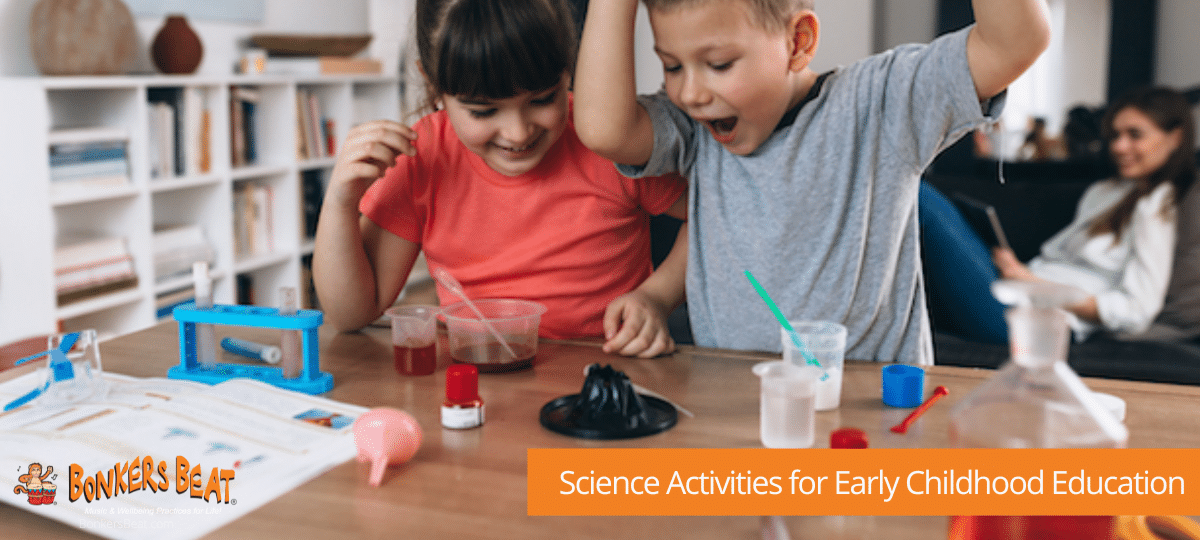Science is always fun to explore and learn with children in early childhood education settings. And with National Science Week upon us from 13 to 21 August this year, what better time to get stuck into some science experiments with children?!
Take advantage of children’s natural curiosity and desire to learn with these simple but super fun science activities!
Science Activities for Early Childhood Education
Solid to liquid
What you need:
- A bowl of ice
- Food colouring or glitter (optional)
- Ice tray (optional)
What to do:
This one is super easy! Put some ice in a bowl and keep track as the ice melts, changing its form from a solid to a liquid. Add food colouring or glitter to make it decorative if you like. Children may also be fascinated to pour the liquid back into an ice tray, popping it in the freezer and finding out that it can return to its solid state once again!
Get cooking
What you need:
- Any recipe of your choice!
What to do:
Cooking is full of incredible science-related learning. Let children be a part of the cooking action as things dissolve down to liquids and seemingly disappear! Watch as gooey batter is heated in the oven to become a puffy pastry, muffin or cake! Melt yummy cheese under the grill and see it change states. Cooking is a limitless science experiment and it’s yummy too!
Build a bridge
What you need:
- A variety of items such as blocks, cardboard, icy pole sticks, cups, toys
- A selection of ‘testing’ items of various weights
What to do:
Using your variety of items encourage children to try to build a bridge structure.
Try a few different ways, perhaps with icy pole sticks, cardboard, cups — whatever you can find. See which bridge is strongest by testing how much weight they can hold with your testing items!
Float or sink
What you need:
- Bowl or tub filled with water
- A range of waterproof objects
What to do:
Pick up an item, guess whether it will float or sink then drop it into the water to find out! Encourage children to consider why the object might float or sink. Maybe you could extend this activity by adding sails to an object that floats to make a boat!
The benefits of science for children
There is so much to be learned through science, but on top of that there are many benefits for children’s developing brains.
Through science children can process cause and effect, and have their curiosity stimulated to promote a desire for learning. Further, science can foster skills for life such as problem-solving skills and creative thinking.
Get ready for lots of inquisitive questions and enjoy celebrating the joy of science!
Visit the National Science Week website for extra resources and information.
For even more ideas take a look at our blog last year to get tips on exploring science of wellness! Don’t forget to share your experiments with us on our Facebook page, we’d love to see them! Happy Science week!





